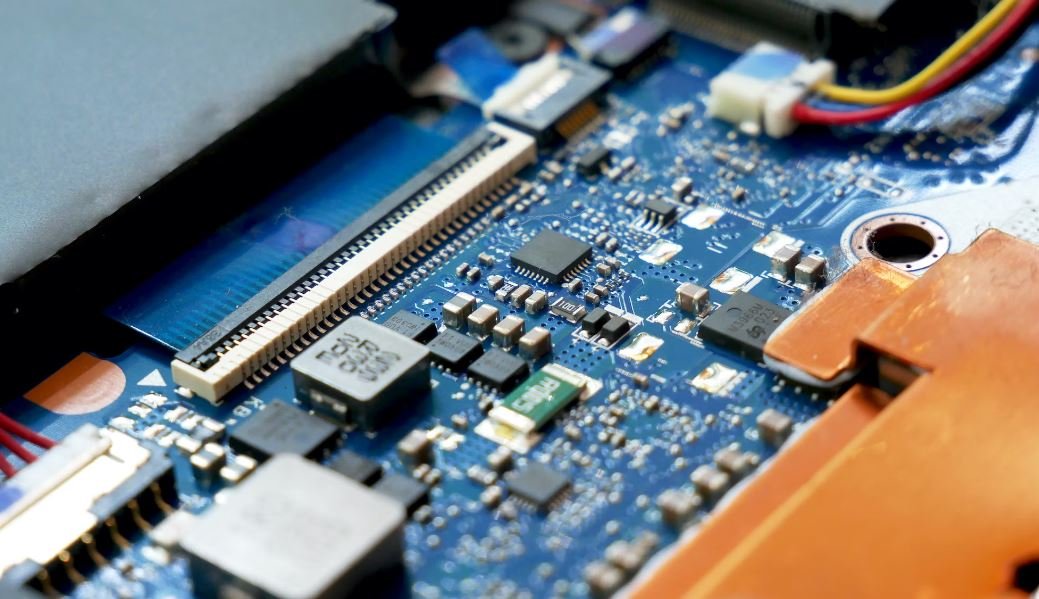AI Product Manager Job Description
An AI Product Manager is responsible for overseeing the development and implementation of AI-powered products and services. This role combines technical expertise with managerial and strategic skills to deliver innovative solutions that meet the needs of both the business and customers.
Key Takeaways
- An AI Product Manager is responsible for developing and managing AI-powered products and services.
- They need to have a strong technical background, as well as excellent managerial and strategic skills.
- AI Product Managers must be able to analyze market trends and user feedback to continuously improve products.
- They collaborate with cross-functional teams to define product vision, set priorities, and ensure timely delivery.
- Strong communication and leadership skills are essential for success in this role.
As an AI Product Manager, you will play a pivotal role in driving the development and success of AI products. You will lead cross-functional teams composed of engineers, data scientists, designers, and marketers to create innovative AI solutions. *Your ability to bridge the gap between technical and business realms will be crucial in delivering valuable products to customers.
One interesting aspect of this role is the opportunity to work with cutting-edge technologies and contribute to the future of AI. You will closely collaborate with the AI research team, stay updated on the latest advancements, and apply them effectively to enhance product performance.
Responsibilities of an AI Product Manager
- Identify market opportunities and define the product vision, strategy, and roadmap.
- Gather customer insights, conduct user research, and refine product requirements.
- Collaborate with engineering and data science teams to develop AI algorithms and models.
- Ensure the effective implementation and seamless integration of AI technologies.
- Analyze market trends, competitive landscape, and user feedback to guide product enhancements.
- Set product priorities, create project plans, and ensure timely delivery.
- Collaborate with marketing and sales teams to create effective go-to-market strategies.
- Monitor product performance and conduct data analysis to drive continuous improvement.
- Stay updated on industry trends, advancements in AI, and emerging technologies.
- Provide leadership and guidance to cross-functional teams throughout the product lifecycle.
AI Product Manager Skills
- Strong technical background: Proficient in AI technologies, algorithms, and models.
- Strategic mindset: Ability to define product vision and develop effective strategies.
- Problem-solving skills: Analytical thinking and data-driven decision-making.
- Excellent communication: Ability to convey complex ideas to both technical and non-technical stakeholders.
Education and Experience Requirements
To pursue a career as an AI Product Manager, a solid educational foundation is crucial. A bachelor’s degree in computer science, engineering, or a related field is typically required. *Having hands-on experience with AI technologies, such as developing AI models or working on AI projects, is desirable.
| Position | Education Requirement | Experience Requirement |
|---|---|---|
| AI Product Manager | Bachelor’s degree in computer science or related field | 2-5 years of experience in product management or related roles |
| Senior AI Product Manager | Bachelor’s degree in computer science or related field (master’s degree preferred) | 5+ years of experience in AI product management or related roles |
As technology continues to evolve, the role of an AI Product Manager becomes increasingly vital. By leveraging the potential of AI, businesses can drive innovation, improve customer experiences, and gain a competitive advantage. This dynamic role requires a unique blend of technical expertise, strategic thinking, and strong leadership skills to deliver AI-driven solutions that meet the needs of today’s rapidly changing market.

Common Misconceptions
Misconception #1: Anyone can be an AI Product Manager
One common misconception is that anyone with basic knowledge of artificial intelligence can be an AI Product Manager. However, this role requires a unique blend of technical and business skills, along with a deep understanding of AI and its applications.
- Basic knowledge of AI is not enough; a strong understanding of machine learning, natural language processing, and data analysis is essential.
- AI Product Managers need to possess excellent communication and collaboration skills to work effectively with cross-functional teams.
- Business acumen is crucial as AI Product Managers need to align AI solutions with business goals and drive the adoption of AI products within the organization.
Misconception #2: AI Product Managers just manage the technical aspects
Another misconception is that AI Product Managers only focus on the technical aspects of AI products. While technical expertise is important, AI Product Managers have a much broader role that involves strategic planning, product development, and ensuring user satisfaction.
- AI Product Managers need to apply a strategic mindset to identify market opportunities, define product vision, and set priorities for AI product development.
- User-centricity is key; AI Product Managers must understand user needs, conduct user research, and ensure that AI products deliver value and meet user expectations.
- AI Product Managers also play a critical role in product launch and post-launch activities, such as monitoring performance, gathering feedback, and iterating on the product based on user insights.
Misconception #3: AI Product Managers work in isolation
Some people believe that AI Product Managers work in isolation, solely responsible for managing AI products without the need for collaboration. However, this is far from the truth as AI Product Managers work closely with various stakeholders and teams.
- Collaboration with data scientists and engineers is essential to create and refine AI models.
- AI Product Managers need to collaborate with UX/UI designers to ensure seamless user experiences and intuitive interfaces.
- Cross-functional collaboration with marketing, sales, and customer support teams is crucial to develop AI product messaging, drive adoption, and address customer needs.
Misconception #4: AI Product Managers only focus on AI technology
There is a misconception that AI Product Managers only focus on the AI technology itself, neglecting other important aspects such as business strategy and market analysis. However, AI Product Managers must have a holistic approach that encompasses both technical and business dimensions.
- Understanding market trends and competitive landscape is important for AI Product Managers to identify opportunities, differentiate products, and make informed decisions.
- AI Product Managers need to align AI product roadmaps with business goals, considering factors such as revenue potential, customer needs, and market demand.
- Strategic thinking is key; AI Product Managers need to evaluate the impact of AI products on the overall business and make decisions that drive growth and profitability.
Misconception #5: AI Product Managers are replacing human jobs
One of the biggest misconceptions is that AI Product Managers are responsible for replacing human jobs. However, the role of AI Product Managers is to leverage AI technology to enhance existing products and services, not to eliminate jobs.
- AI Product Managers work alongside human teams, facilitating the integration of AI into workflows and empowering employees to make better decisions using AI tools.
- The role of AI Product Managers is to bridge the gap between technology and humans, ensuring that AI solutions are designed to augment human capabilities rather than replace them.
- AI Product Managers enable organizations to leverage AI technology for improved efficiency, innovation, and competitiveness, ultimately creating new opportunities for both businesses and employees.

AI Product Manager Job Description – Key Responsibilities
The following table highlights the key responsibilities of an AI Product Manager, which includes tasks related to product development, customer engagement, and project management:
| Responsibility | Description |
|---|---|
| Define Product Strategy | Formulate a clear vision and roadmap for the AI product, aligning it with organizational goals. |
| Market Research | Conduct thorough research to identify market trends, customer needs, and competitive landscape. |
| Feature Prioritization | Analyze user feedback and data to determine which features to prioritize in the product development process. |
| Cross-functional Collaboration | Collaborate with engineering, design, and data science teams to ensure efficient product development. |
| Product Launch | Plan and execute successful product launches, including coordination of marketing and sales efforts. |
| Product Performance | Monitor key product metrics, conduct data analysis, and implement improvements to enhance performance. |
| Customer Engagement | Engage with customers to gather feedback, understand their needs, and improve the product accordingly. |
| Project Management | Oversee project timelines, resource allocation, and ensure timely delivery of high-quality products. |
| Competitive Analysis | Stay up-to-date with the AI industry, analyze competitors, and identify opportunities for differentiation. |
| Team Leadership | Provide guidance, mentorship, and leadership to members of the AI product management team. |
Skills and Qualifications
This table outlines the essential skills and qualifications required for an AI Product Manager:
| Skill/Qualification | Description |
|---|---|
| Technical Acumen | Strong understanding of AI technologies, machine learning, and data analytics. |
| Product Management Experience | Prior experience in product management, preferably in the AI or tech industry. |
| Communication Skills | Excellent verbal and written communication skills to effectively convey complex ideas. |
| Leadership Abilities | Demonstrated ability to lead and inspire cross-functional teams towards a common goal. |
| Business Acumen | Understanding of business strategies, market dynamics, and customer needs. |
| Analytical Thinking | Strong problem-solving skills and ability to make data-driven decisions. |
| Negotiation Skills | Proficiency in negotiation and influencing stakeholders to drive product success. |
| Adaptability | Ability to thrive in a fast-paced, constantly evolving AI industry and adapt to new technologies. |
| Strategic Mindset | Capable of thinking strategically and anticipating future market trends and customer needs. |
| Team Player | A collaborative mindset and willingness to work effectively within a team environment. |
AI Product Manager Salary Range
The table below provides an overview of the salary range for AI Product Managers based on their experience:
| Experience Level | Salary Range (per year) |
|---|---|
| Entry Level | $70,000 – $90,000 |
| Mid-Level | $90,000 – $120,000 |
| Senior Level | $120,000 – $160,000 |
| Executive Level | $160,000+ |
Top Industries Hiring AI Product Managers
The following table showcases the top industries actively seeking AI Product Managers:
| Industry | Share of AI Product Manager Jobs |
|---|---|
| Technology | 30% |
| Finance | 20% |
| Healthcare | 15% |
| Retail | 10% |
| Transportation | 10% |
| Other | 15% |
Popular AI Skills for Product Managers
Here are the most sought-after AI skills preferred by companies when hiring AI Product Managers:
| Skill | Percentage of Job Postings |
|---|---|
| Machine Learning | 70% |
| Natural Language Processing | 50% |
| Data Science | 45% |
| Deep Learning | 40% |
| Computer Vision | 35% |
| Big Data Analytics | 25% |
| Artificial Intelligence Ethics | 20% |
AI Product Manager Educational Requirements
The educational background and qualifications expected for AI Product Manager positions are summarized below:
| Educational Attribute | Minimum Requirements |
|---|---|
| Bachelor’s Degree | Computer Science, Engineering, or related fields |
| Master’s Degree | Advantageous but not always required |
| Certifications | AI or Product Management certifications considered a plus |
| Work Experience | Minimum of 3-5 years in product management |
Challenges Faced by AI Product Managers
AI Product Managers encounter various challenges in their roles. Here are a few key difficulties they commonly face:
| Challenge | Description |
|---|---|
| Data Quality | Ensuring the availability of high-quality and relevant data to train AI models. |
| Ethical Considerations | Addressing ethical implications of AI, such as biased algorithms or privacy concerns. |
| Interpreting User Feedback | Effectively understanding user feedback and aligning it with product improvements. |
| Staying Cutting-Edge | Maintaining knowledge of the rapidly evolving AI landscape to stay ahead of competition. |
| Managing Complexity | Juggling multiple stakeholders, technical complexities, and project deadlines. |
Benefits of Hiring an AI Product Manager
Employing an AI Product Manager can bring various benefits to an organization. Some key advantages include:
| Benefit | Description |
|---|---|
| Product Success | Increased likelihood of developing and launching successful AI products. |
| Effective Resource Allocation | Optimal allocation of resources, ensuring projects align with business objectives. |
| Customer Satisfaction | Better understanding of customer needs, resulting in improved product experiences. |
| Competitive Advantage | Ability to differentiate products in the market and gain an edge over competitors. |
| Innovation Acceleration | Enhanced innovation capabilities through AI-focused product management techniques. |
AI Product Managers play a critical role in driving the success of AI-powered products. They combine their technical expertise, product management skills, and business acumen to develop innovative and customer-centric solutions. By defining product strategies, collaborating cross-functionally, and staying abreast of industry trends, they ensure efficient product development and exceptional user experiences. Additionally, their ability to overcome challenges and leverage the benefits of hiring an AI Product Manager further contribute to the overall growth and success of organizations in the rapidly evolving AI landscape.
Frequently Asked Questions
AI Product Manager Job Description
What is the role of an AI Product Manager?
An AI Product Manager is responsible for overseeing the development and management of AI-powered products. They collaborate with cross-functional teams, gather requirements, define product visions, and ensure the successful delivery of AI products that meet user needs.
What are the key skills required for an AI Product Manager?
Some key skills required for an AI Product Manager include strong knowledge of AI technologies, ability to understand user requirements, excellent communication and leadership skills, data analysis skills, and a good understanding of product management principles.
What qualifications are typically needed to become an AI Product Manager?
To become an AI Product Manager, candidates often need a degree in computer science, engineering, or a related field. Additionally, having experience in product management, AI development, and knowledge of machine learning concepts is highly beneficial.
What are the main responsibilities of an AI Product Manager?
The main responsibilities of an AI Product Manager include defining product strategies and roadmaps, conducting market research, identifying user needs, collaborating with engineering teams, managing product development cycles, and ensuring the successful launch and adoption of AI products.
What challenges does an AI Product Manager face?
Some challenges an AI Product Manager may face include handling complex AI technologies, managing diverse stakeholder expectations, staying updated with evolving AI trends, dealing with data privacy and ethical concerns, and effectively communicating technical concepts to non-technical stakeholders.
What is the career path for an AI Product Manager?
The career path for an AI Product Manager usually starts with gaining experience in product management or AI development roles. With experience, they can progress to senior product management positions, and some may even become AI strategy consultants or start their own AI-focused ventures.
What is the difference between an AI Product Manager and a Data Scientist?
While both roles involve working with AI technologies, an AI Product Manager focuses on the strategic aspects of developing and managing AI products, understanding user needs, and driving business outcomes. On the other hand, a Data Scientist focuses on analyzing and interpreting data to derive actionable insights and build AI models.
What are some examples of AI products that an AI Product Manager might work on?
AI Product Managers can work on a variety of products, such as AI-powered chatbots, recommendation systems, virtual assistants, fraud detection algorithms, personalized marketing platforms, and predictive analytics tools, to name a few.
Are coding skills necessary for an AI Product Manager?
While coding skills are not always a strict requirement for an AI Product Manager, having a basic understanding of programming concepts and familiarity with AI technologies can be advantageous in communicating with engineering teams and making informed product decisions.
How can one prepare for a career as an AI Product Manager?
To prepare for a career as an AI Product Manager, one can pursue relevant education, such as obtaining a degree in a relevant field, gaining experience in product management or AI development roles, staying updated with AI advancements through online courses or industry conferences, and honing skills in areas such as data analysis, communication, and leadership.





